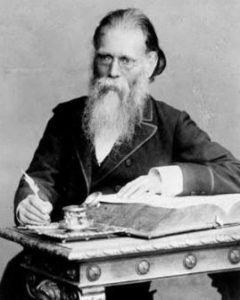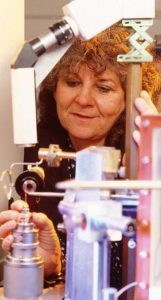Founder of the Jewish National Fund
 Zvi Hermann Hirsch Schapira (1840-1898) was born to a religious Russian-Jewish family in a small Lithuanian village. He studied to become a rabbi and at age 24 was appointed to his first post. However, he soon decided to pursue his passion for the sciences and ended up studying at a Berlin academy. Three years later, he settled in Odessa and worked for several years as a merchant. In 1878, Schapira moved to Heidelburg and spent another four years studying math and physics, during which time he earned his doctorate. He became a math professor at the University of Heidelburg, and published several important papers. Throughout this time, he continued studying Jewish literature, and contributed to three Hebrew periodicals. By 1884, Shapira was a vocal Zionist, and suggested the establishment of a Jewish National Fund which would buy land in Israel and help settle Jews there. He formally proposed the idea to the First Zionist Congress in 1897, where he also suggested the establishment of a Hebrew University in Jerusalem. Tragically, Schapira died the following year from pneumonia. The Jewish National Fund would finally be launched three years later, and it would take another two decades before the Hebrew University would open its doors. The JNF would go on to become one of the most important organizations in Israel’s history, and instrumental in the nascent state’s success. It purchased over 50% of Israel’s landmass, developed over 250,000 acres of its land, planted some 260 million trees, built nearly 200 dams and reservoirs, and established over 1000 parks. The JNF also played a key role in the founding of Tel Aviv in 1909, and in running Israel’s first postal service. It still owns about 13% of Israel’s land, and in the past decade alone, helped Israel expand its water capacity by 7%. The JNF is perhaps most famous for its Tu b’Shevat tree-planting drive, which over a million Jews participate in every year.
Zvi Hermann Hirsch Schapira (1840-1898) was born to a religious Russian-Jewish family in a small Lithuanian village. He studied to become a rabbi and at age 24 was appointed to his first post. However, he soon decided to pursue his passion for the sciences and ended up studying at a Berlin academy. Three years later, he settled in Odessa and worked for several years as a merchant. In 1878, Schapira moved to Heidelburg and spent another four years studying math and physics, during which time he earned his doctorate. He became a math professor at the University of Heidelburg, and published several important papers. Throughout this time, he continued studying Jewish literature, and contributed to three Hebrew periodicals. By 1884, Shapira was a vocal Zionist, and suggested the establishment of a Jewish National Fund which would buy land in Israel and help settle Jews there. He formally proposed the idea to the First Zionist Congress in 1897, where he also suggested the establishment of a Hebrew University in Jerusalem. Tragically, Schapira died the following year from pneumonia. The Jewish National Fund would finally be launched three years later, and it would take another two decades before the Hebrew University would open its doors. The JNF would go on to become one of the most important organizations in Israel’s history, and instrumental in the nascent state’s success. It purchased over 50% of Israel’s landmass, developed over 250,000 acres of its land, planted some 260 million trees, built nearly 200 dams and reservoirs, and established over 1000 parks. The JNF also played a key role in the founding of Tel Aviv in 1909, and in running Israel’s first postal service. It still owns about 13% of Israel’s land, and in the past decade alone, helped Israel expand its water capacity by 7%. The JNF is perhaps most famous for its Tu b’Shevat tree-planting drive, which over a million Jews participate in every year.
Happy Tu b’Shevat!
Words of the Week
When God created the first man, He showed him all the trees of the Garden of Eden, and said to him: “See My works, how beautiful and praiseworthy they are. And everything that I created, I created it for you. Be careful not to spoil or destroy My world, for if you do, there will be nobody after you to repair it.”
– Midrash (Kohelet Rabbah 7:13)


